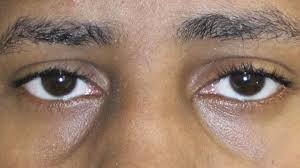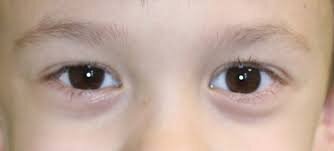Kansas City Myo & Wellness: orofacial myofunctional therapy, health coaching, and wellness. Breathe your best life and bloom.
How to Help Your Child Breathe & Bloom:
Tips for Parents from a Myofunctional Therapist
As a parent you want your child to be happy and healthy, but you can only protect them from what you know. THIS is meant to reveal to you what you may not know so that you can help your child Breathe & Bloom: Encourage better breathing, better sleep, and better facial structure.
Crowded teeth, ADHD, ADD, snoring, bedwetting, mouthbreathing, speech problems, thumbsucking, tired eyes, dental cavities, bad breath, tongue ties, breastfeeding problems, teeth grinding, poor posture, picky eating…
What do these things have in common? They may be linked to an oral myofunctional disorder (OMD.)
First you may be wondering… what IS a myofunctional therapist?
An oral myofunctional therapist works with patients to achieve proper oral rest posture, healthy swallowing and chewing patterns, nasal breathing, and habit cessation.
WARNING SIGNS TO FOR:
Parted Lips
A rest posture of lips together, teeth slightly apart, and tongue pressed against the roof of the mouth promotes symmetrical, beautiful facial growth and health. Improper rest posture can lead to a longer, narrower face, crowded teeth, bite issues, smaller airway/nasal cavity and health problems.
Chapped lips
Dryness frequently is associated with breathing through the mouth instead of nose.
Eyes
Are they downturned? Can you see white under the iris? Does your child have dark circles under their eyes? All can be signs of insufficient facial growth and sleep/breathing problems. The images above came from Angie Lehman’s article Eye spy: What the eyes can tell us about the mouth. Check out the article here.
Forward tilted head posture
Have you ever taken CPR? Tilting the chin is one of the first steps so the airway is open. A child who is struggling to breathe will often project their head forward and tilt their chin up.
Pacifiers, Sippy Cups, Thumbsucking
Extended use of these can not only change the shape of your child’s mouth, but also have a long term effect on how they hold their tongue. These items force the tongue to be low in the mouth which sets up your child for mouthbreathing and improper growth. Research shows that pacifier use can also stunt emotional development in boys due to the effect on the infants ability to mimic parent’s facial expressions.
Take note of signs that growth and development are not on track:
crowded teeth (kids should have spaces between their teeth so adult teeth can erupt)
eyes: dark circles, downturned, or white under the iris
sleep: snoring, grinding, not sleeping through the night, prolonged bedwetting, mouthbreathing, sweating, flopping around, night terrors
forward head posture, head tilted back (this can be your child compensating to breathe)
Breathing
Watch the way your child breathes. If your child often has their mouth open or you notice them mouthbreathing, it’s a good idea to have their tonsils & adenoids and airway evaluated. (A CBCT is a good way to do this, we offer this at my office Dental Health By Herre).
Address nasal congestion immediately. A stuffy nose will lead to breathing through the mouth. Mouthbreathing provides poor oxygenation and impacts facial structure development. Nasal sprays and essential oils can be great ways to reduce congestion. Check out my blog post on this here. https://www.kansascitymyoandwellness.com/…/reducingnasalcon…
Eating
Encourage eating foods that require chewing. Chewing promotes development of the facial muscles and helps with growth of the upper and lower jaws. Bone needs force and pressure to grow.
Avoid baby food purees and pouches to lessen the risk of habitual low positioning of the tongue.
Use open cups or cups with straws instead of sippy cups for better oral development.
Develop self-soothing skills at 2-3 years to transition away from thumbsucking and pacifier use.
Remind them to have good posture and chew with their mouth closed. Both can effect development.
Behavior
Research is speculating that symptoms like ADHD may actually be a sleep/breathing problem and that behavior is due to being overtired. If my child were diagnosed with ADHD or it was suggested that medication be taken, I would want to determine if my child has a healthy airway, rule out a sleep disorder/ enlarged tonsils and adenoids.
Teeth
Address crowding and small dental arches early through expansion to avoid recommendations for extractions of permanent teeth for orthodontic treatment. You will see a picture below of a younger me. I didn't have enough space for my teeth and did not have expansion done. I had to have 4 permanent teeth removed for braces. I REALLY wish I hadn't.
Breastfeeding
Did your child have any issues with breastfeeding? (Hiccups, poor latch, reflux, low supply, nipple pain) Have them evaluated for a tongue tie by a myofunctional therapist. A tongue tie can effect the way a child breathes, eats, speaks, and grows.
Be informed
I recommend these books:
Jaws
Nobody Ever Told Me (or My Mother) That
The Dental Diet
Tongue Tied
Buteyko Meets Mew
Raising a Healthy, Happy Eater
Breath
Adventures in Veggiland
Buteyko Meets Mew







